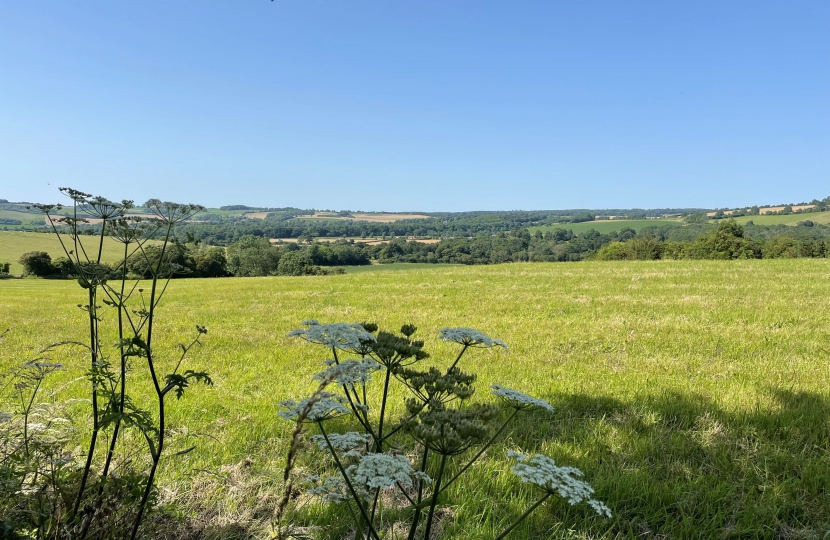
Successful and profitable agricultural production is crucial to our food security. We are facing challenges on issues like biodiversity loss and climate change, so we must use our freedom from the EU’s Common Agricultural Policy to establish a new system of rewards and incentives in agriculture. Our new policies will support the choices that individual farmers make, with freedom to choose which elements work for them.
The Government has unveiled the next stages of its plan to reward farmers and landowners for actions which benefit the environment, supporting sustainable food production alongside vital nature recovery and work towards net zero.
The Government has announced three new environmental land management schemes. The schemes will complement each other, with farmers able to enter into both the Sustainable Farming Incentive and Local Nature Recovery schemes, building an agreement that works for them. Landscape Recovery agreements will be bespoke and designed to align with other public or private funding, whether from Sustainable Farming Incentive and Local Nature Recovery or other sources.
These will help in halting the decline in species by 2030, bringing up to 60% of England’s agricultural soil under sustainable management by 2030, and restoring up to 300,000 hectares of wildlife habitat by 2042.
The Local Nature Recovery scheme will pay farmers for locally-targeted actions which make space for nature in the farmed landscape and countryside such as creating wildlife habitat, planting trees or restoring peat and wetland areas. The Landscape Recovery scheme will support more radical changes to land-use change and habitat restoration such as establishing new nature reserves, restoring floodplains, or creating woodland and wetlands.
Taken together with the previously announced Sustainable Farming Incentive which supports sustainable farming practices, they are designed to provide farmers and land owners with a broad range of voluntary options from which they can choose the best for their business. The reforms are the biggest changes to farming and land management in 50 years with more than 3,000 farmers already testing the new schemes.
These pilot projects alone are expected to deliver significant environmental benefits including:
- the creation of 10,000 hectares of restored wildlife habitat
- carbon savings between 25 to 50 kilotonnes per year – roughly equivalent to taking between 12,000 – 25,000 cars off the road
- improved status of around half (45-57%) of the most threatened species in England, including the Eurasian curlew, sand lizard and water vole
All the environmental schemes will be voluntary and it will be for farmers to decide what combination of actions is right for them. Defra is designing them to be accessible, supportive and with fair compensation to incentivise high levels of uptake. The scheme will be adjusted and expanded as the pilots continue. The aims of the schemes will also be kept under review as long-term, legally binding targets are developed under the Environment Act.
You can find more information on this here: https://www.gov.uk/government/news/government-unveils-plans-to-restore-…;
